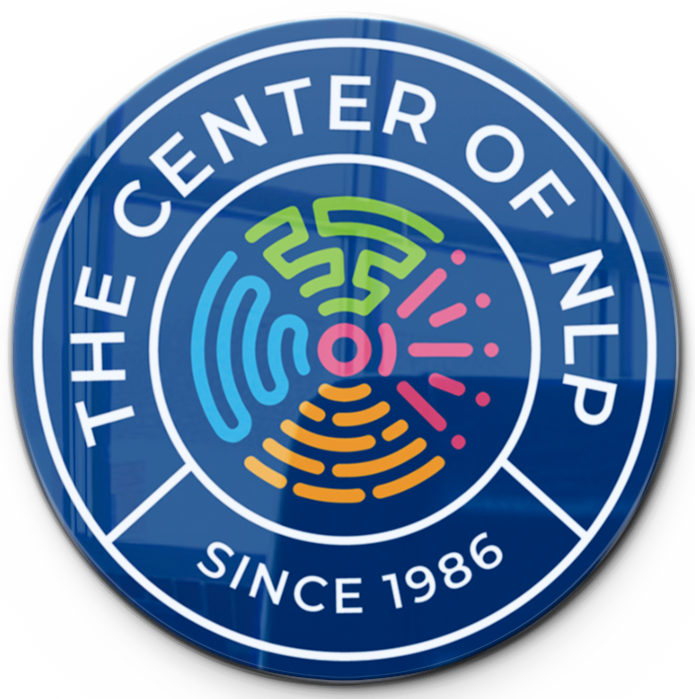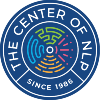CONTACT US info@centerofnlp.com

NLP for Stress Management: Techniques to Find Inner Peace
Introduction
In today's fast-paced world, stress has become a common part of our lives. Whether it's due to work pressure, personal challenges, or other factors, stress can take a toll on our mental and emotional well-being. Fortunately, there are various techniques available to manage stress effectively, and one such powerful tool is Neuro-Linguistic Programming (NLP). NLP offers a unique approach to understanding how our thoughts and language patterns affect our behavior and emotions. In this article, we will explore NLP techniques and how they can help us find inner peace amidst life's challenges.
Understanding NLP
Neuro-Linguistic Programming, commonly known as NLP, is a psychological approach that explores the connections between our neurological processes, language, and behavioral patterns. It was developed in the 1970s by Richard Bandler and John Grinder. NLP operates on the belief that by changing our thought patterns and language, we can rewire our behavior and emotional responses, ultimately leading to a more positive and fulfilling life.
The Link between NLP and Stress Management
Stress can manifest in various ways, affecting our mental, emotional, and physical health. NLP provides valuable techniques that can help us manage stress more effectively. By understanding the root causes of stress and its triggers, NLP empowers individuals to take control of their reactions and make positive changes in their lives.
NLP Techniques for Stress Reduction
Anchoring: NLP introduces the concept of anchoring, which involves associating a specific emotion or state with a physical stimulus. By creating positive anchors, such as touching a specific finger, individuals can access a calm and composed state during stressful situations.
Reframing: NLP encourages individuals to reframe their negative thoughts into positive ones. By changing how we perceive a stressful event, we can alter our emotional response and reduce the impact of stress on our well-being.
Visualization: This technique involves creating a vivid mental image of a peaceful and stress-free environment. Visualization allows individuals to relax their minds and bodies, promoting inner peace.
Time-based techniques: NLP uses various time-based techniques, such as timeline therapy, to address past traumas and negative experiences that contribute to stress. By resolving these issues, individuals can free themselves from emotional baggage.
Language patterns: NLP emphasizes the importance of the language we use, both internally and externally. Positive and empowering language can shift our mindset and alleviate stress.
Applying NLP in Daily Life
Incorporating NLP techniques in our daily lives can be transformative. During challenging situations, practicing anchoring or reframing can help us stay composed and focused. By incorporating NLP into our daily routines, we can build resilience and better cope with stress.
Achieving inner peace through NLP involves regular self-reflection and mindfulness. By applying NLP techniques consistently, individuals can cultivate a deep sense of peace and contentment within themselves.
Benefits of NLP for Stress Management
The benefits of NLP for stress management are far-reaching:
Improved emotional regulation: NLP equips individuals with the tools to manage their emotions effectively, preventing them from being overwhelmed by stress.
Enhanced self-awareness: Through NLP, individuals gain insights into their own thought patterns and behaviors, fostering self-awareness and personal growth.
Better communication skills: NLP techniques enhance communication, promoting healthier relationships and reducing interpersonal stress.
Reduced anxiety and tension: NLP helps individuals release pent-up tension and anxiety, promoting relaxation and tranquility.
Limitations of NLP
While NLP is a powerful tool, it is essential to recognize its limitations. NLP is not a substitute for professional medical or psychological treatment. Individuals facing severe stress or mental health issues should seek support from qualified professionals.
Combining NLP with Other Stress Management Approaches
To enhance the effectiveness of stress management, individuals can combine NLP techniques with other approaches such as meditation and mindfulness. Integrating NLP with Cognitive-Behavioral Therapy (CBT) can also be beneficial for managing stress and anxiety.
Real-Life Success Stories
"I was constantly anxious and stressed about my job. After learning NLP techniques, I could handle pressure with ease, and my productivity improved significantly."
"I used to dwell on past mistakes and felt burdened by regrets. NLP helped me let go of the past and focus on building a positive future."
"Ready to Elevate Your Communication? Contact Us Now for NLP Coaching!"
Conclusion
In conclusion, Neuro-Linguistic Programming (NLP) offers valuable techniques for stress management and finding inner peace. By understanding the connection between our thoughts, language, and behavior, individuals can make positive changes in their lives. Incorporating NLP into daily routines can lead to improved emotional regulation, better communication skills, and reduced anxiety. While NLP is a powerful tool, it should be used in conjunction with other stress management approaches. If you're seeking a path to inner peace and improved well-being, exploring NLP techniques could be a transformative journey.
Learn more here: Centerofnlp.com
For inquiries and further information, kindly reach out via email to info@centerofnlp.com
Check Out For more:
Boosting Confidence and Overcoming Limitations with NLP Techniques
The Art of Effective Communication: NLP Strategies for Better Interactions
NLP Techniques for Overcoming Procrastination and Boosting Productivity
Mastering Influence: Using NLP to Persuade and Inspire Others
FAQs
Is NLP suitable for everyone?
NLP can be beneficial for many individuals, but it may not resonate with everyone. It's essential to explore various techniques to find what works best for you.
Can NLP completely eliminate stress?
While NLP can significantly reduce stress, it may not eliminate it entirely. However, it equips individuals with effective tools to cope with stress more positively.
Can I practice NLP on my own?
Yes, many NLP techniques can be practiced independently. However, for more complex issues, seeking guidance from an experienced NLP practitioner is advisable.
Are there any side effects of NLP?
NLP is generally safe and doesn't have significant side effects. However, individuals should be mindful of their emotional responses during certain techniques.
How long does it take to see results with NLP?
The timeline for experiencing results with NLP varies from person to person. Some individuals may notice positive changes quickly, while others may require more time and practic
Copyright 1989 - 2024 | The Center of NLP © | All Rights Reserved

